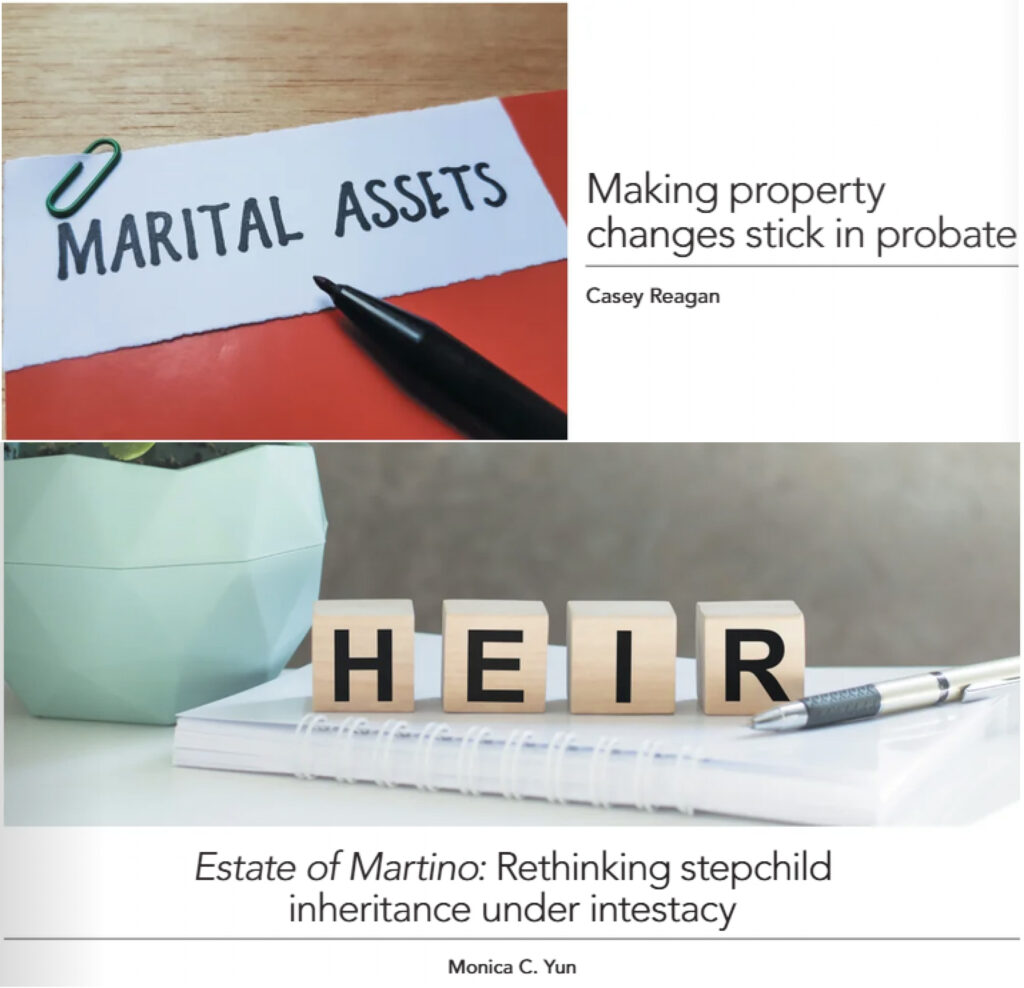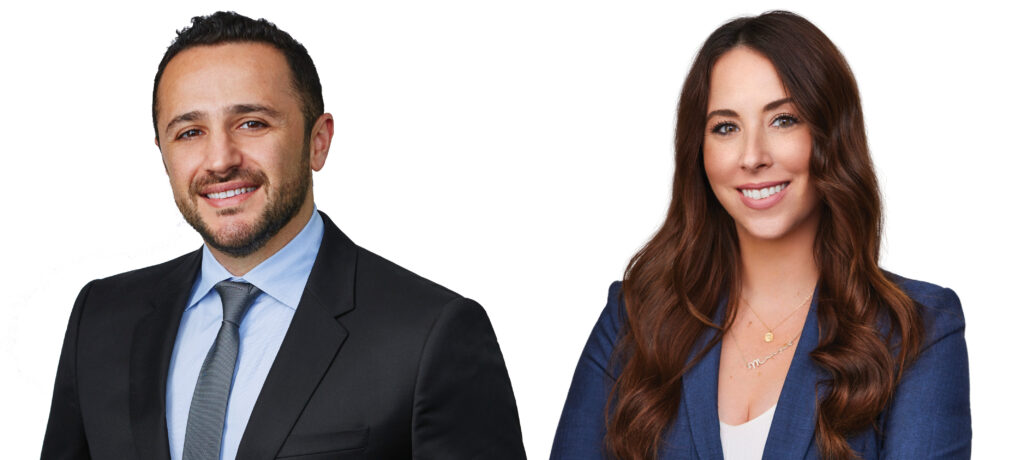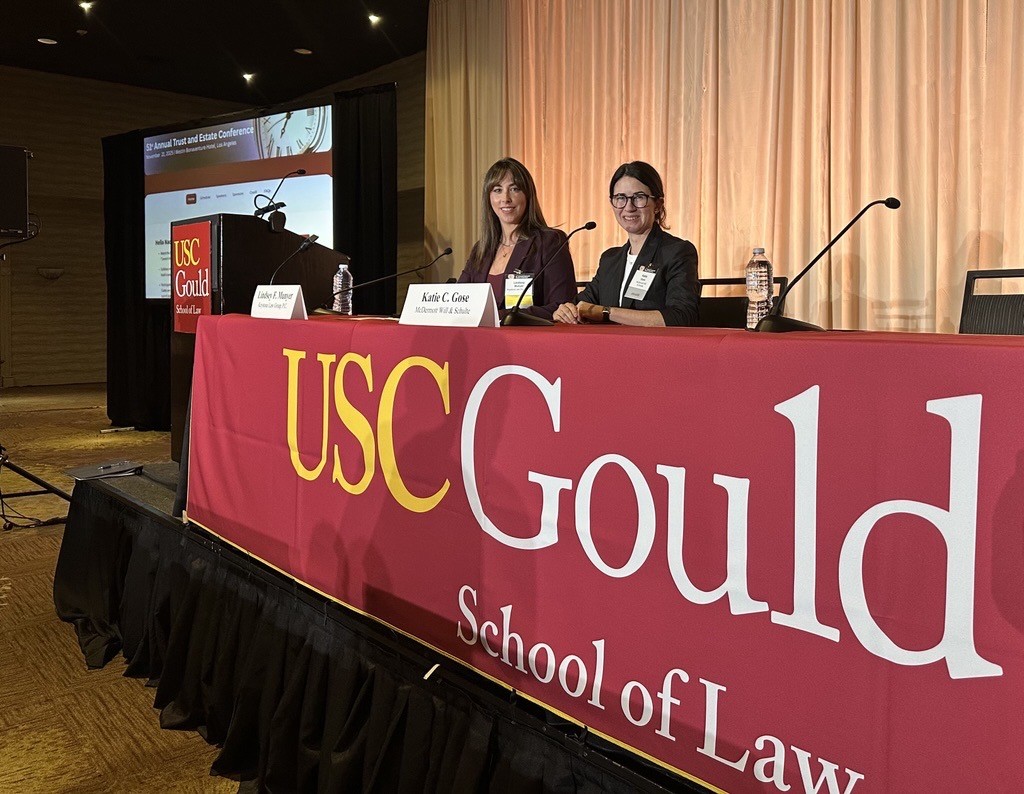Keystone’s attorneys have achieved myriad and significant successes for their clients during the past year. For this first issue of the Keystone Quarterly in 2019, Keystone would like to share with our readers some of these successes (and of course, these successes do not constitute a guarantee, warranty or prediction regarding the outcome of your legal matter):
- Through creative arguments and vigorous litigation, Keystone obtained a settlement on behalf of non-relative, contingent trust beneficiaries of the vast majority of decedent’s multi-million-dollar trust estate, despite the fact that decedent’s new trust was prepared by a premier estate planning firm, it named a third-party as sole beneficiary and Keystone’s clients’ connection to the decedent were as relatives of decedent’s divorced spouse.
- In a combined conservatorship and trust action involving the Petitioner’s request to remove Keystone’s client as successor trustee of his mother’s trust, which the mother endorsed and claimed that Keystone’s client kidnapped her and threatened her life, Keystone achieved settlement with the Petitioner after just one day of trial, which fully vindicated client’s position by allowing him to remain acting as trustee and having the trust pay his attorney’s fees. The testimony of Petitioner’s own expert raised doubt about the mother’s ability to grasp the financial ramifications of removing her son, who was working as trustee without compensation, and replacing him with a paid private professional fiduciary.
- Keystone substituted into a protracted, ongoing action on behalf of the sole trust beneficiary involving a hostile trustee, the beneficiary’s mother, who not only refused to distribute any of the beneficiary’s share (despite unambiguous trust language requiring this distribution to be made immediately and free of trust), but who also claimed that the beneficiary should be entitled to nothing due to distributions the trustee allegedly made during the beneficiary’s childhood. Shortly thereafter, by demonstrating that the trustee was no longer acting neutrally or in the best interests of the beneficiary, Keystone was able to get this trustee suspended, which created considerable leverage and ultimately allowed this case to settle for a greater settlement sum to this beneficiary than had ever previously been offered.
- Keystone represented beneficiaries of decedent’s prior estate plan in an action to invalidate decedent’s new trust, which disinherited Keystone’s clients on the primary basis that Keystone’s clients, who lived with the decedent, were allegedly responsible for her deteriorating physical condition. However, by procuring evidence demonstrating that the new trust was executed by the decedent during a time that the decedent was under a temporary conservatorship and hospitalized, was signed only three days before decedent’s death and was prepared by the attorney who represented the new trust’s beneficiary rather than the decedent, Keystone obtained a settlement for clients which represented the majority of the decedent’s multi-million-dollar estate.
- Keystone successfully represented trustee clients at trial on the guardianship of the estate of a minor, arguing that no guardianship was necessary because all of the minor’s assets were held in trust (managed by these trustees) and that if a guardianship of the estate was necessary a professional fiduciary should be appointed rather than the Petitioners who, Keystone argued, had a history of aggressive litigation tactics and hostility with the trustees. On the basis of Keystone’s trial brief and oral arguments alone and without the need for a full trial, the court agreed with Keystone that there appeared to be no assets in the guardianship estate and appointed a professional fiduciary to act on an interim basis as the minor’s guardian ad litem to represent the minor’s interests, thereby achieving clients’ goals.
- Keystone successfully settled a case on behalf of the brother beneficiary, who along with his sister were the two unequal trust beneficiaries, against an action brought by his sister contesting the decedent’s will, reforming a trust provision, and holding her brother liable for financial elder abuse, all of which, the sister argued, should have the effect of entirely disinheriting her brother. But through Keystone’s representation, and even though the contested trust instrument benefiting Keystone’s client was drafted by a paralegal and not a licensed attorney, Keystone was able to obtain a favorable resolution at mediation, which resulted in the brother beneficiary receiving most of what he would have received under the terms of contested instruments.
- Keystone represented a client whose husband had passed away many years prior, and who had left behind the family residence, which was titled as separate property in his name only. Since the husband passed away without a will, under California law, Keystone’s client would be entitled to only one-half of the home that she had been residing in for approximately 40 years, with the remaining one-half going to husband’s heirs. Keystone’s client was growing older and needed to sell the property to provide for her own long-term care. Keystone worked closely with the client to identify and prove a long history of community property contributions toward the property over the lifetime of the client and her husband. By doing so, Keystone was able to obtain a court order establishing that the client was entitled to all but a nominal percentage of the interest in the property, allowing client to sell the property and receive almost all of the proceeds to comfortably provide for her future care.
- Keystone petitioned to recover its clients’ shares of two pieces of real property, each owned by a separate trust – both of which named the opposing side as its sole beneficiaries. Nonetheless, through aggressive litigation – asserting that the trusts and trust amendment which benefited the opposing side should be invalidated on account of lack of capacity and undue influence – Keystone was able to secure a settlement for clients that approximated what clients would have otherwise obtained, had the clients received a successful judgment at trial on their claims.
- Keystone represented the surviving spouse of the decedent in an action to recover the community property interest of a life insurance policy obtained by decedent as a non-ERISA benefit of decedent’s employment. Decedent did not change the beneficiary designation on the life insurance policy after getting married, and thus, Keystone argued that the surviving spouse was entitled to a share of the death benefits because, regardless of the beneficiary designation, the surviving spouse held a community property interest in the insurance proceeds. When the named beneficiary refused to give the surviving spouse a share of the life insurance proceeds, Keystone was retained and immediately negotiated a settlement at a mandatory settlement conference, resulting in the surviving spouse receiving the full fifty-percent share of the life insurance proceeds she was entitled to receive.
* * *
Keystone thanks all of its clients for a successful 2018, and wishes everyone a great start to 2019!
Want to read about Keystone’s Recap of 2017 Successes? Click here.










